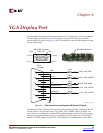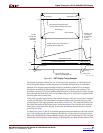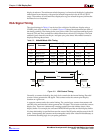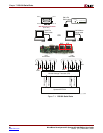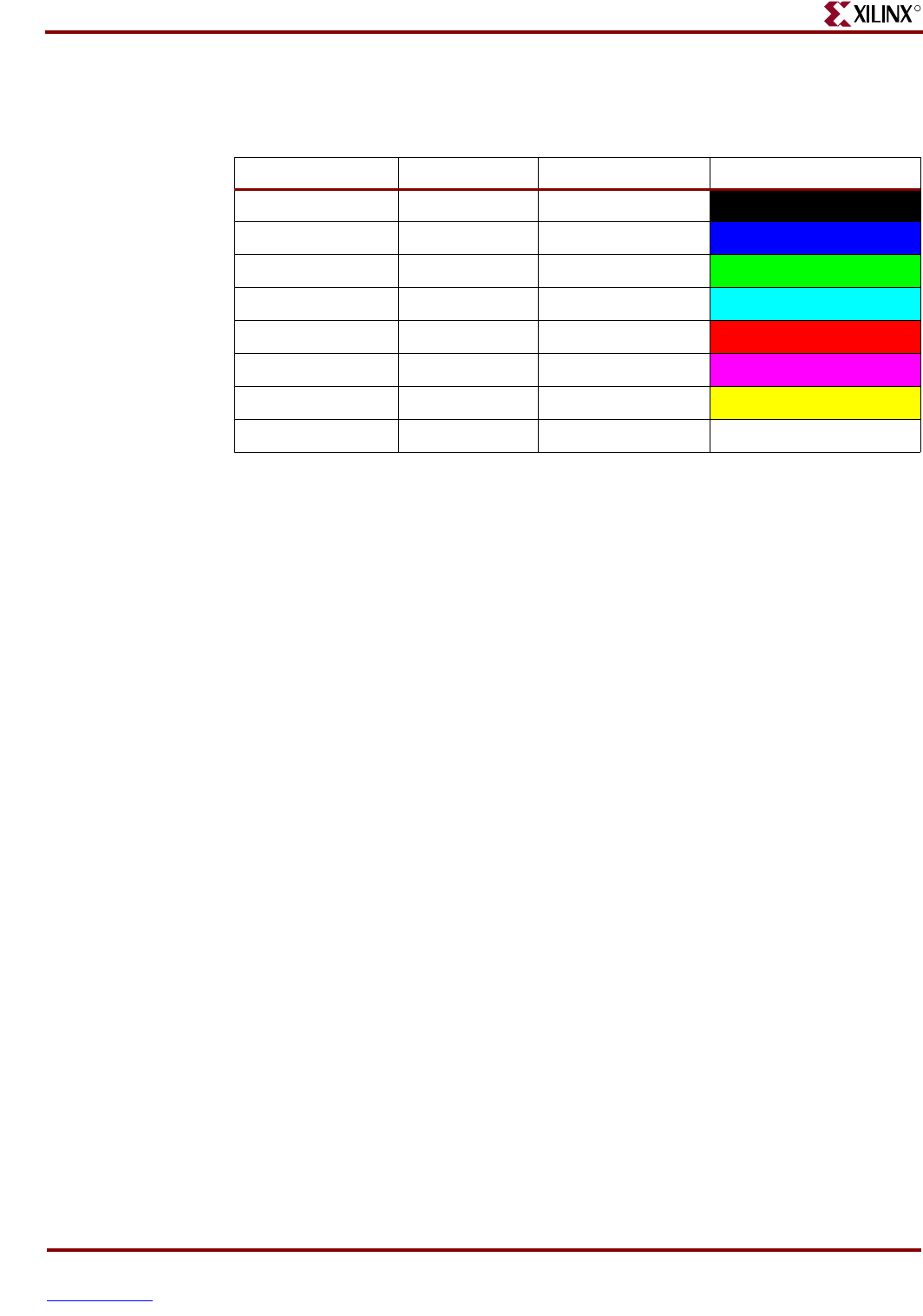
54 MicroBlaze Development Kit Spartan-3E 1600 Edition User Guide
www.xilinx.com UG257 (v1.1) December 5, 2007
Chapter 6: VGA Display Port
R
the VGA_RED, VGA_GREEN, and VGA_BLUE signals High or Low to generate the eight
colors shown in Table 6-1.
VGA signal timing is specified, published, copyrighted, and sold by the Video Electronics
Standards Association (VESA). The following VGA system and timing information is
provided as an example of how the FPGA might drive VGA monitor in 640 by 480 mode.
For more precise information or for information on higher VGA frequencies, refer to
documents available on the VESA website or other electronics websites (see “Related
Resources,” page 57).
Signal Timing for a 60 Hz, 640x480 VGA Display
CRT-based VGA displays use amplitude-modulated, moving electron beams (or cathode
rays) to display information on a phosphor-coated screen. LCDs use an array of switches
that can impose a voltage across a small amount of liquid crystal, thereby changing light
permittivity through the crystal on a pixel-by-pixel basis. Although the following
description is limited to CRT displays, LCDs have evolved to use the same signal timings
as CRT displays. Consequently, the following discussion pertains to both CRTs and LCDs.
Within a CRT display, current waveforms pass through the coils to produce magnetic fields
that deflect electron beams to transverse the display surface in a raster pattern, horizontally
from left to right and vertically from top to bottom. As shown in Figure 6-2, information is
only displayed when the beam is moving in the forward direction—left to right and top to
bottom—and not during the time the beam returns back to the left or top edge of the
display. Much of the potential display time is therefore lost in blanking periods when the
beam is reset and stabilized to begin a new horizontal or vertical display pass.
Table 6- 1: 3-Bit Display Color Codes
VGA_RED VGA_GREEN VGA_BLUE Resulting Color
00 0
Black
00 1
Blue
01 0
Green
01 1 Cyan
10 0
Red
10 1
Magenta
11 0
Yellow
11 1 White










